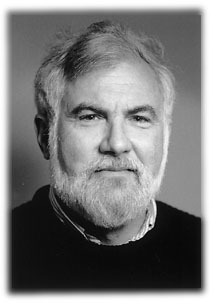Main Menu · Search ·Current Issue ·Contact ·Archives ·Centennial ·Letters to the Editor ·FAQs
 Social scientist Mark Nathan Cohen.
Social scientist Mark Nathan Cohen. |
Mark Nathan Cohen '65 has made biological and cultural differences among human beings his field of study. He has lived and worked on five continents, and studied a variety of societies, from prehistoric times to the present. Now, concerned over what he sees as a disturbing growth of racism and hostility to government in this country, and a widening gap between rich and poor, he has published a new book on contemporary American society. How solvable are the social problems Americans face today, and what role should government play in seeking solutions? Cohen, distinguished teaching professor of anthropology at SUNY-Plattsburgh, is convinced that the debate on this important subject has lacked both scientific accuracy and cultural breadth.
In Culture of Intolerance: Chauvinism, Class, and Racism in the United States, he attempts to remedy the situation, by summing up current scientific knowledge about race and offering an anthropologist's view of culture. The book is thus both an ambitious intellectual synthesis and a deeply felt plea for openmindedness. Cohen argues passionately that no behavioral traits such as superior "intelligence" are genetically based in certain groups more than others, and that unequal distribution of wealth and privileges is the result not of inherent human differences, but of specific cultural choices. He stresses, for example, that while Americans admire "individual" success, all achievements by individuals occur within a social context. A whole host of social supports and constructs--including laws, law-enforcement bodies, roads, communication networks, and a healthy workforce--underlie every successful entrepreneur's ability to acquire wealth, for example. "No corporation would give away assets in which it had invested the way society routinely does," he says. "If society claimed and used some of this wealth, it could solve most of the problems blamed on 'race.'"
Over the past few decades, Cohen notes, Americans have come to appreciate the contribution of foreign and non-mainstream cultures to our food and music. "What we need to understand better," he stresses, "is how they can also help us question our assumptions and priorities concerning society." In the book he writes of inviting a fellow Harvard student home many years ago; at the end of the visit the friend, a Nigerian from a polygamous family--offered Cohen's mother his sympathy because her husband had no other wives to keep her company when her children went back to college. The remark hardly turned him into an advocate of polygamy, Cohen says, but it did impress on him the fact that different societies have come up with a variety of solutions for such universal human problems as loneliness. "We don't have to remain trapped in our own cultural assumptions," he observes. "Nowadays many people assume that freedom is constrained by government, when in fact--overwhelmingly--freedom is constrained by cultural blinders. For me, anthropology is about understanding that there are other paradigms available."
~ Deborah Schneider